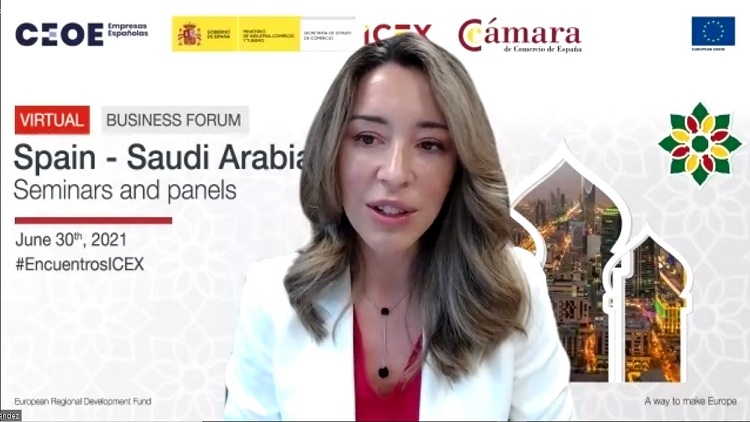The Diplomat
A total of 170 companies from the two countries are participating in the Spain-Saudi Arabia Business Meeting, an event organized by the Spanish Secretary of State for Trade, through ICEX Spain Export and Investment, to analyze the future prospects that are opening up in the Saudi market in the water and tourism sectors.
The meeting, held entirely virtually and whose organization also involved the Spanish Chamber of Commerce and the Spanish Confederation of Business Organizations (CEOE), was inaugurated yesterday by the Secretary of State for Trade of Spain and president of ICEX, Xiana Mendez, the Minister of Commerce of Saudi Arabia, Majid bin Abdullah Al Kassabi, and the Ambassador of Spain in Riyadh, Alvaro Iranzo.
In addition, throughout yesterday, several seminars and round tables were held on opportunities in the sectors convened, water and tourism, with the participation of representatives and leading local experts, both from the public and private sectors. On Tuesday, the first day of the meeting, a talk-colloquium was held to analyze the situation of the Saudi market and the main strategic lines of the Government aimed at the diversification and modernization of its economy.
According to ICEX, Saudi Arabia has been and is an economy dependent on oil and natural gas production. The Kingdom is home to 15.6% of the world’s oil reserves and 4.7% of the world’s gas reserves. To reduce its heavy dependence on oil, the country launched the Saudi Vision 2030 strategic plan, which has “ambitious reform and modernization programs to diversify its economy and develop non-oil sectors”.
Saudi Arabia is the 14th largest country in the world in terms of land area, yet it has scarce water resources, with no permanent rivers. With no surface water and an average annual rainfall of less than 84 millimeters over the past ten years, the Kingdom relies on desalination to meet the growing demand for water. The current Saudi population, with more than 34 million inhabitants, is one of the populations with the highest per capita water consumption rates in the world, with an average of 278 liters per day. Water desalination and wastewater treatment are therefore essential.
Regarding the tourism sector, the main objectives of Saudi Vision 2030 are to increase the capacity to accommodate pilgrims (Umrah) from eight million in 2015 to 30 million in 2030, to reach 100 million stays in the country between foreign visitors and Saudi residents, and to improve the system for issuing visas to foreigners. In this sense, event initiatives such as the Saudi Seasons or the Winter at Tantora, as well as the so-called Gigaprojects, will imply “a wide range of commercial opportunities and a change in the international perception of the Arab country that will facilitate the greater influx of tourists, traditionally almost reserved for religious tourism”.







